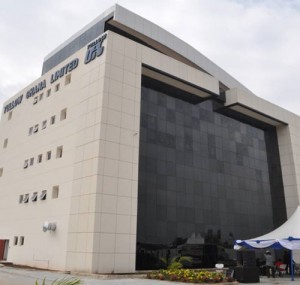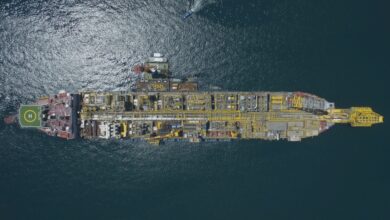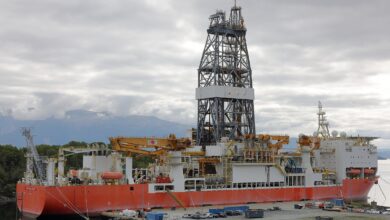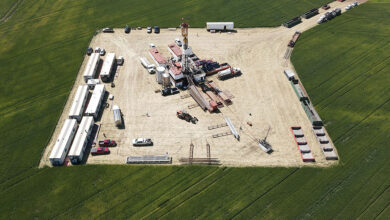Jubilee has infrastructure development on fast-track for Tullow Ghana

Since its discovery in June 2007, the Jubilee oil field in the Republic of Ghana has created a sense of euphoria among residents of this West African country. It is a classic West African deepwater discovery and subsea scheme.
Tullow Ghana Ltd (TGL) drilled 17 wells in the initial phase of its strategic approach to Jubilee, nine of which are producing; first oil is targeted for Q4 2010. Such a rapid production target has forced TGL to act quickly in order to develop the necessary infrastructure to accommodate ongoing operational activities. Speaking at the 2010 IADC Drilling Africa Conference, 20-21 October in London, TGL’s in-country well engineering manager Alan Dowokpor said the goal was to “get the drilling started while keeping an eye on the future.”
TGL has gone from just six employees in Ghana in 2007 to 230 individuals today. To accommodate such growth, the company established a purpose-built seven-floor building in Ghana’s capital, Accra, totaling 3,500 sq meters of real estate. The facility meets all of Ghana’s earthquake building codes and features state-of-the-art IT facilities, emergency response, etc. TGL’s shore-base facility is located at Takoradi, approximately 180 km southwest of Accra.
To support their facilities at Takoradi, TGL constructed new access roads totaling 600 meters of paved surface. They also constructed a 7,000-sq-meters storage facility for tubular goods. In doing so, TGL excavated 70,000 tons – 4,038 truck loads – of unsuitable material from the site. The company then backfilled the area with 52,000 tons of material and 6,700 tons of concrete. This work was completed without injury, all while supporting the drilling activities of two deepwater rigs.
TGL’s commercial port features high-capacity water tanks and marine offices. Dedicated fuel lines are also in place.
The company’s contingency port is the Sekondi port, where drastic improvements to roads and water lines have been made and a flowline “jumper” yard established.
In addition to improving its infrastructure on land, TGL also developed an aviation strategy to improve safety and efficiency when transporting employees from Accra to Takoradi and from Takoradi to the Jubilee field. “Helicopter operations continued to experience accident rates that were far too high,” Mr Dowokpor said.
The company upgraded all of its rotary and fixed wing aircraft to mid- to new-generation models, which resulted in significant improvements in transportation capacity, safety and efficiency. They also upgraded the runway, taxiway and aprons and installed gas cannons to help reduce the risk of bird strikes.
“We have gone from having absolutely nothing in place or in-country,” Mr Dowokpor said, “to establishing a very robust infrastructure that is built and in place. We have been able to do that on budget and without hurting anyone.”




